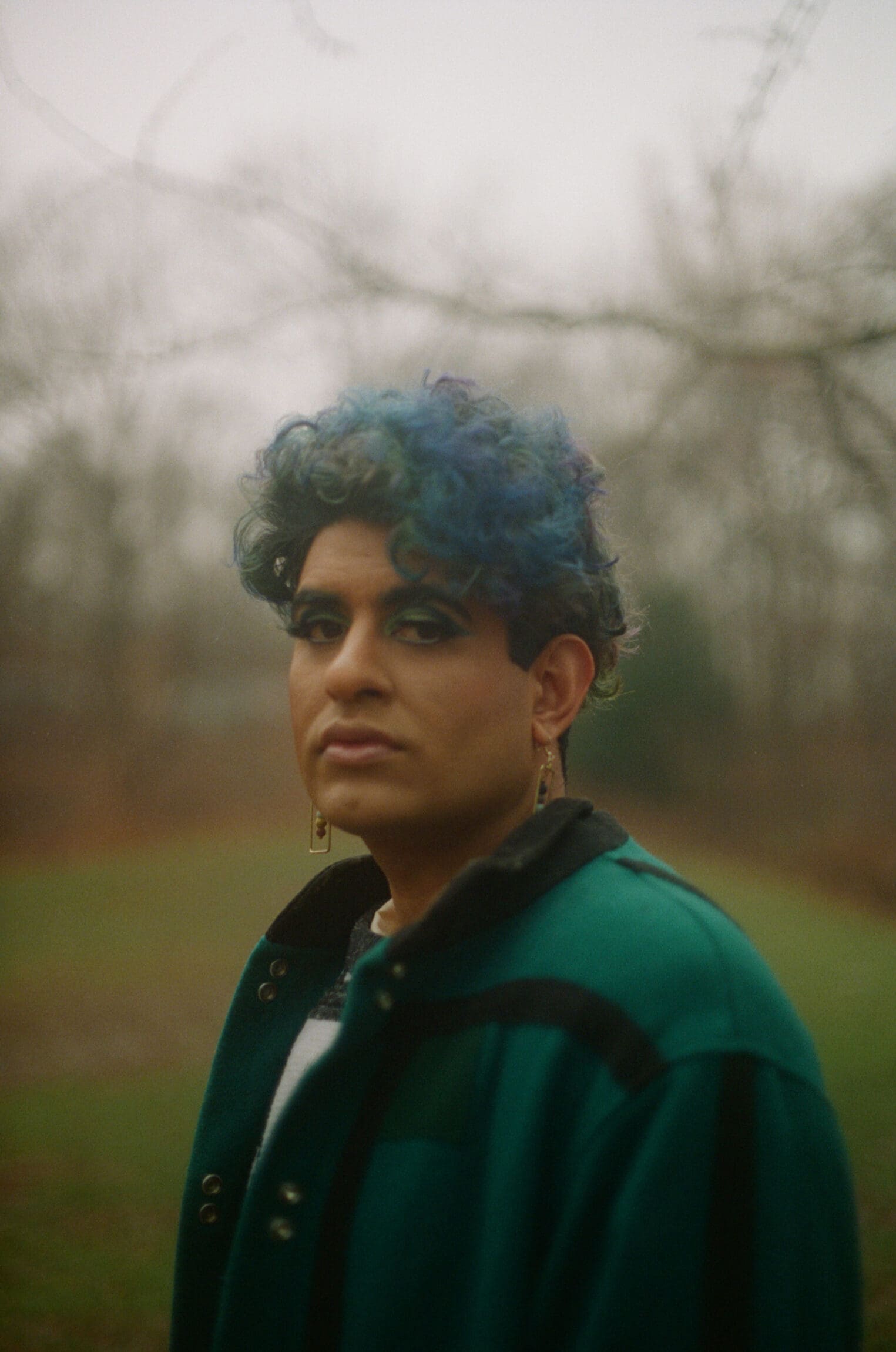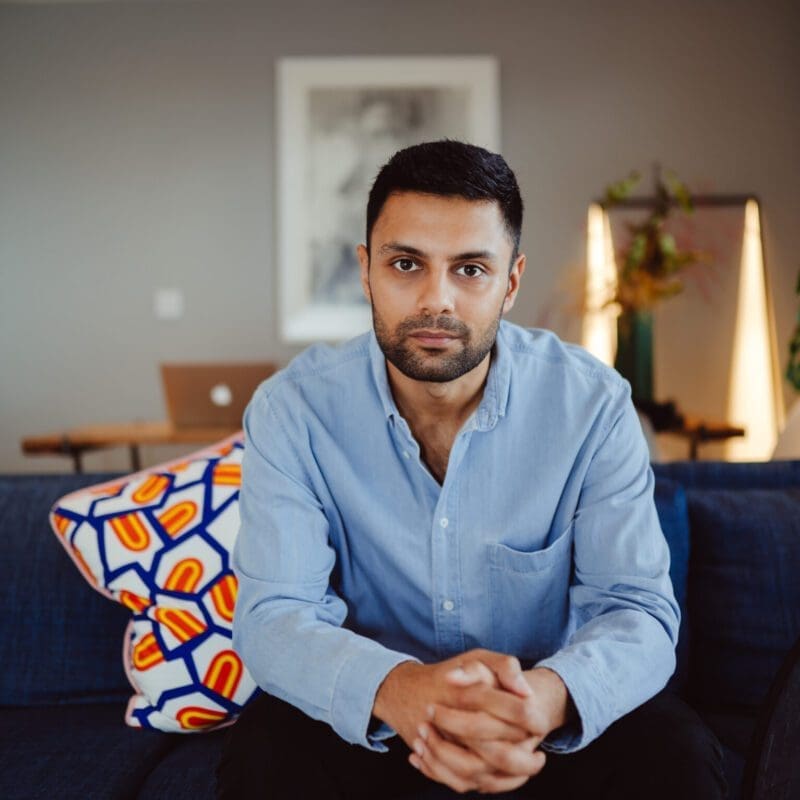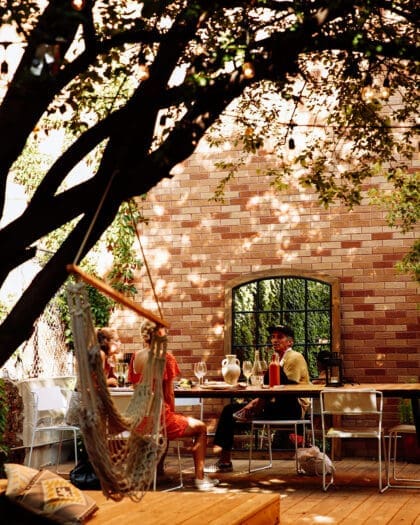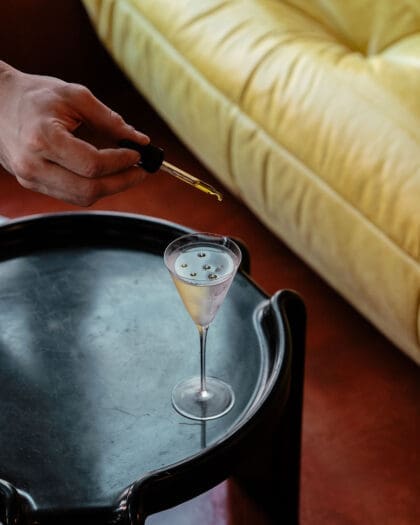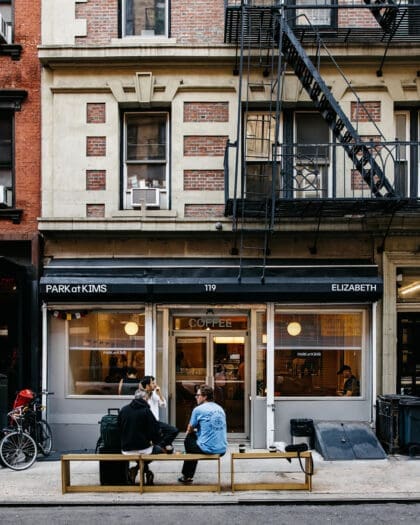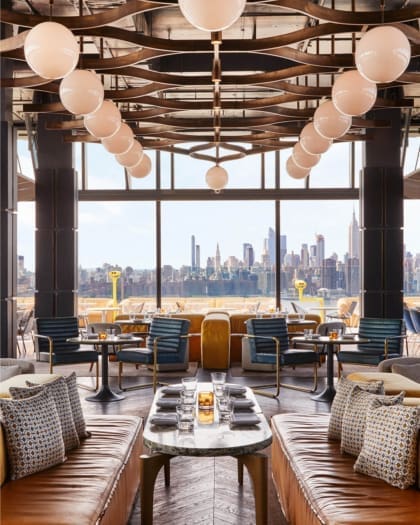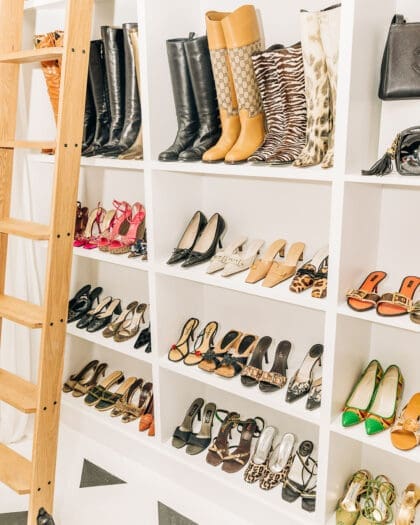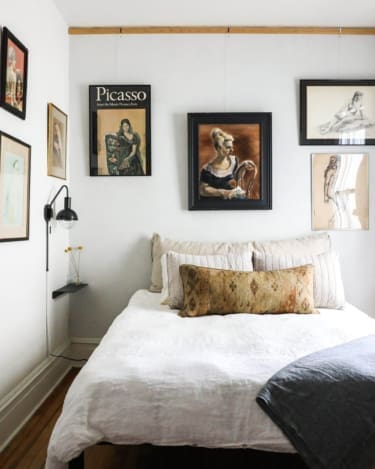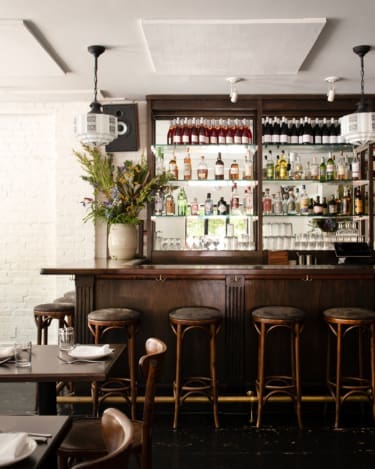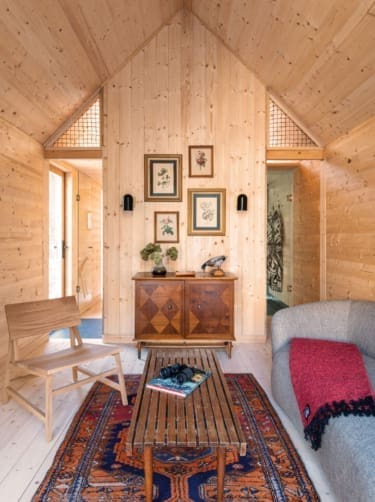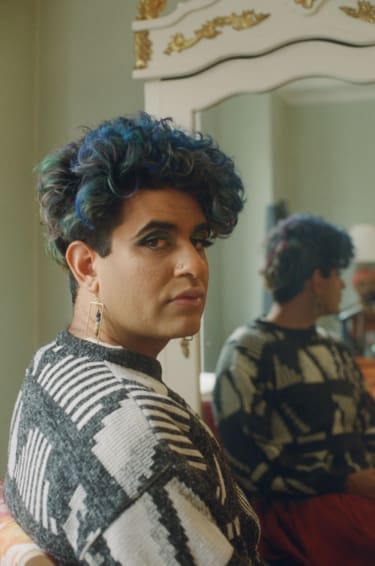
ALOK on courage, comedy and exploring beyond the gender binary
New York-based multi-hyphenate ALOK sat down with author and friend Mohsin Zaidi to discuss global communities, degendering fashion and how travel inspires their work
Alok V Menon is an accomplished author, a remarkable poet and witty performance artist. Hailing from Texas, Alok currently lives in New York and is a leading global figure in the trans and nonbinary movement. They are the embodiment of living truthfully and have amassed more than one million followers on Instagram for their ability to inspire hope for a different, more prosperous tomorrow through poetry and performance.
In so doing, Alok performs, perhaps not always voluntarily, a necessary function for any civilisation seeking truly to further itself, namely that of the societal mirror. In Alok, people see the things they want to be but cannot, the things they want to feel but cannot. In short, they see liberated possibility, even if they fear it.
Alok and I first met in 2021. We were both speaking at a multi-day fashion event in the English countryside, I on themes of intersectionality, Alok on degendering fashion, a movement they have spearheaded. I was excited to meet them. Despite living on different continents, I had known of Alok for some time. Alok’s star is visible globally. Their work has been showcased in more than 40 countries and they have just concluded, in the words of critics, ‘a jaw-dropping celestial’ and ‘provocative and powerful’ world tour, selling out venues from California to London to South Africa to India to Australia.
We discuss Alok’s recent visit to India and how travel shapes their life and work.
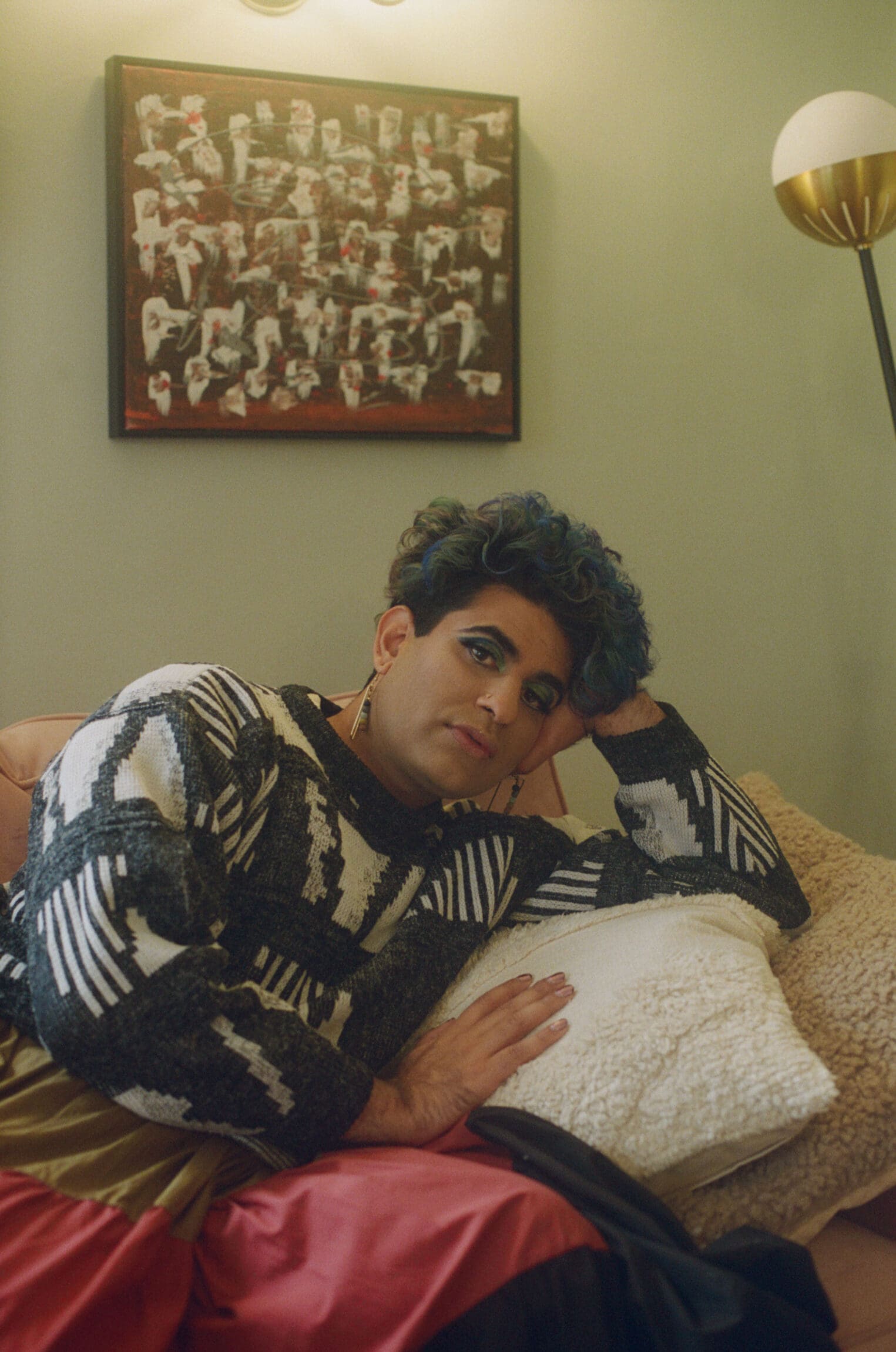
"I was repeatedly told that ‘mental health’ was for white people, not for us"
ALOK’s trip to India
How was your recent tour of India?
It was brilliant. I haven’t had a chance to go back in a couple of years, so it meant so much to reconnect with my family, friends, and audiences there. I’ve lived in India at various points in my life and try to visit as much as possible. Being able to connect and collaborate with Indian artists is incredibly meaningful for me. There are so many people doing such incredible things like No Borders Shop, a sustainable fashion initiative celebrating local artisans.
You mention Indian artists. Do you consider yourself an American artist?
Yes, and/or Indian-American. I was born and raised in the US so my work is shaped by that particular experience.
What has stayed with you since the trip, regarding Indian culture and traditions?
I had so many conversations about family dynamics with people: how difficult it is to interrupt the cycles of intergenerational trauma, especially when intergenerational trauma postures itself as culture.
For example: Growing up when I’d tell family members that I was depressed they’d say we were all depressed and that I should just work my way out of it. I was repeatedly told that ‘mental health’ was for white people, not for us. I was told that our work ethic, our ability to persevere was a virtue and a sign of cultural pride.
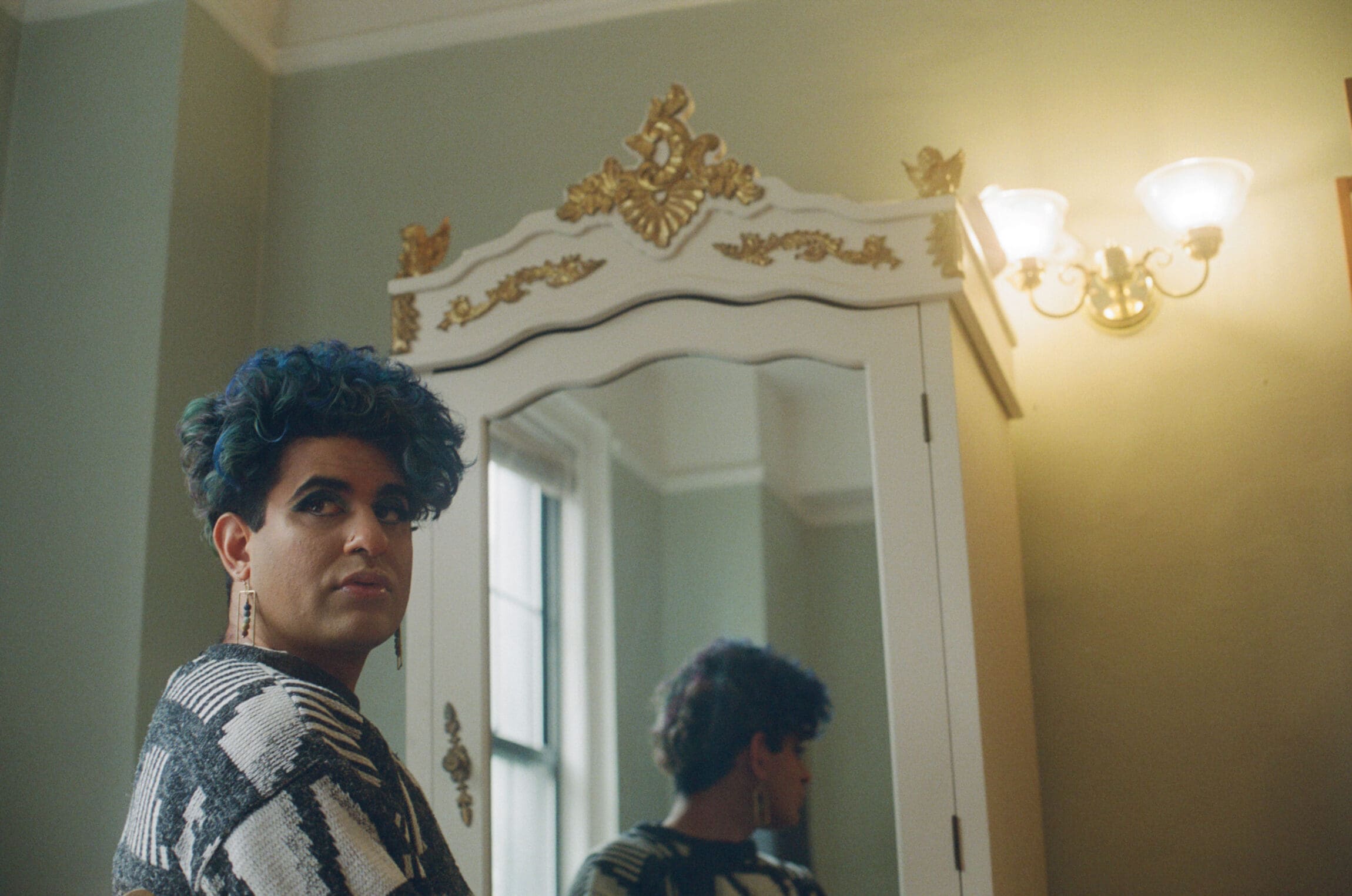
Where did you feel the strongest sense of community on your trip?
Over the years I’ve developed a close-knit queer friend group in India and I feel such a resonant sense of home with them. We spend hours and hours together: doing errands, joking, shopping, reading, travelling, being. Just being. It’s miraculous, really. How lucky am I to have found people I connect with at a soul-level like this. Our connection is magnetic and the memories we create together are some of my most cherished.
What did you find most challenging about the trip from an emotional perspective? What did you learn?
Every time I spend time in India I’m reminded of how thoroughly Americanised I am. There’s grief in being confronted by how much I don’t know, all the subtleties that are lost in translation. There’s always the immediate anxiety spiral about belonging, but pretty soon I return to my revelation that home is not a place for me, it’s an emotion. Something I feel most when I’m around my friends. Disparate people all across the world, people who share the same pain and sense of wonder. My community.
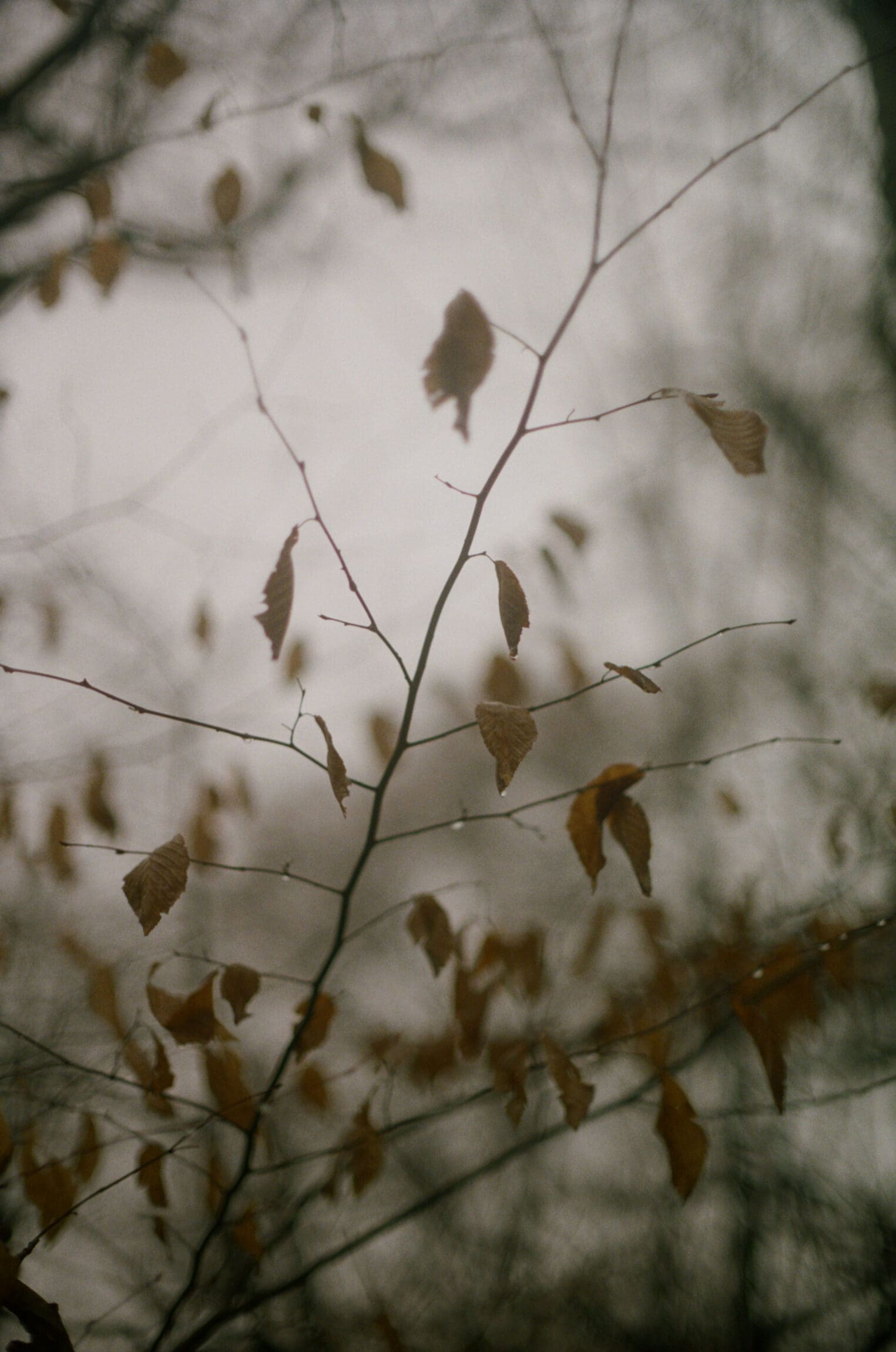
"Comedy feels particularly necessary these days amidst such diffused despair"
I identify as a queer south Asian. But I’m mindful that, being British born, I don’t share the same lived experience as the majority of queer south Asians. Do you ever feel like ‘desi queerness’ is an elusive concept or one from which you are excluded?
Categories require exclusion to give them meaning and definition, which means they often obfuscate just as much as they elucidate. That’s why we shouldn’t see terms like this as definitive, but rather entry points for us to explain further, to unpack our particular nuances. There are as many ways to be desi and queer as there are desi queer people. And that’s wonderful and beautiful.
ALOK’s work in comedy
When did you first get into comedy, and what inspired this? Did you always want to work in a creative field?
I started performing on stage as a poet, but I realised early on that doing hard-hitting poems about grief and trauma one after the other was kind of a buzzkill – for me, and my audiences – so I began to improvise and riff comedic interludes between poems. And what began as supplementary became foundational to my practice. I fell in love with comedy, the space it creates, the intentional cultivation of joy. It feels particularly necessary these days amidst such diffused despair.
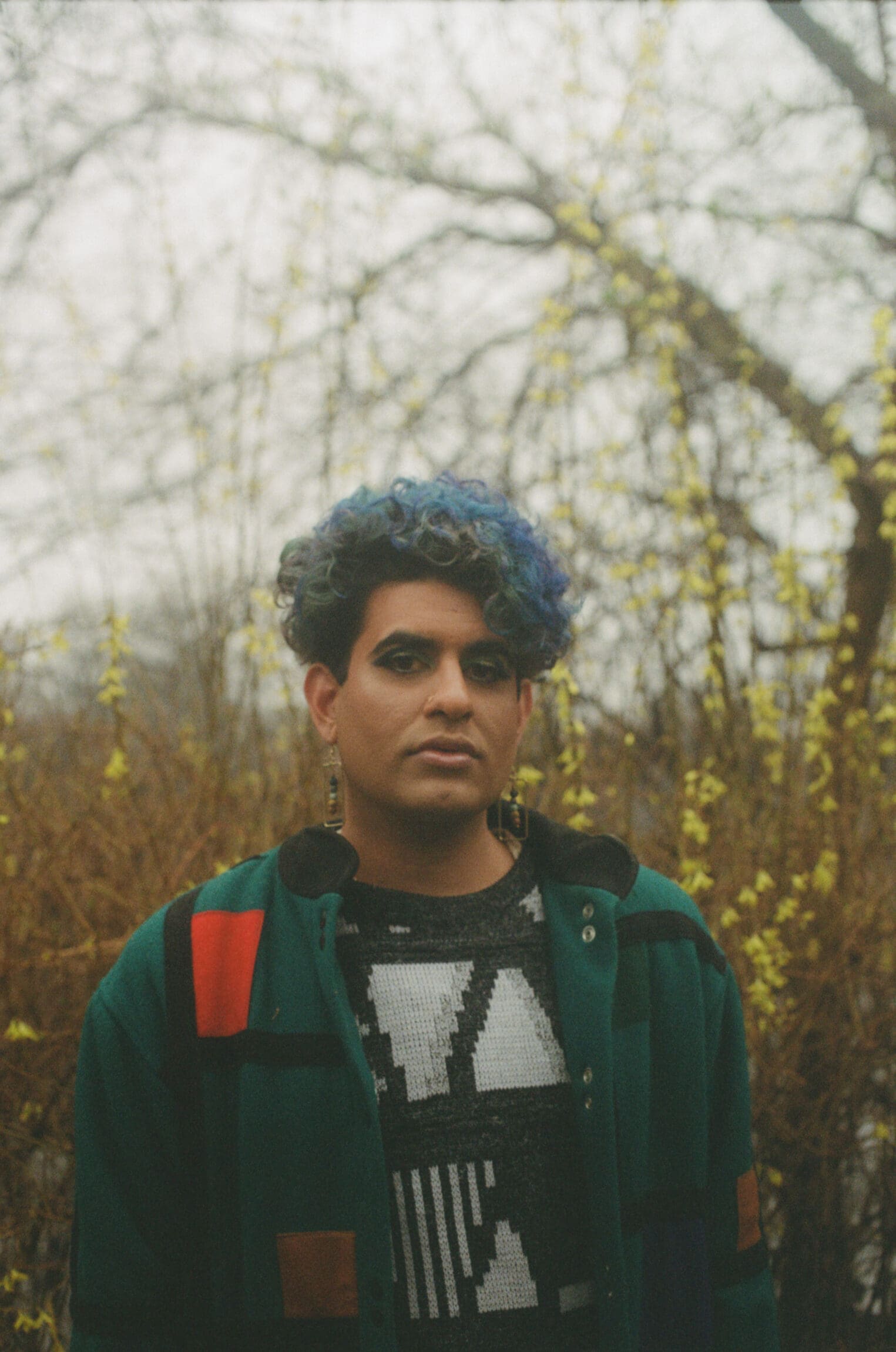
How do you want your work to make people feel?
Like they have permission to live their best lives, and express the fullest extent of themselves. That they can cry out the fullest extent of their grief and their mirth, and feel all the feeling that we don’t even have language for – yet. We live in a world that truncates our capacity to feel, desensitises us and renders us numb. I want my shows to be the opposite of that: re-sensitising, rejuvenating.
Your work is courageous, even if it shouldn’t have to be. Is courage an important part of your life?
For a long time I was hesitant about the language of courage. As you point out, I felt like people used the word ‘courage’ to stabilise inaction and require marginalised people to be resilient. It’s easier to expect people to be courageous than it is to actually eliminate the conditions that make our lives so difficult. And while I still have those reservations, I’ve been using ‘courage’ more. It shouldn’t have to be, but it is a courageous act to be yourself in a world predicated on self betrayal. It does take courage to push past fear and insist on love.
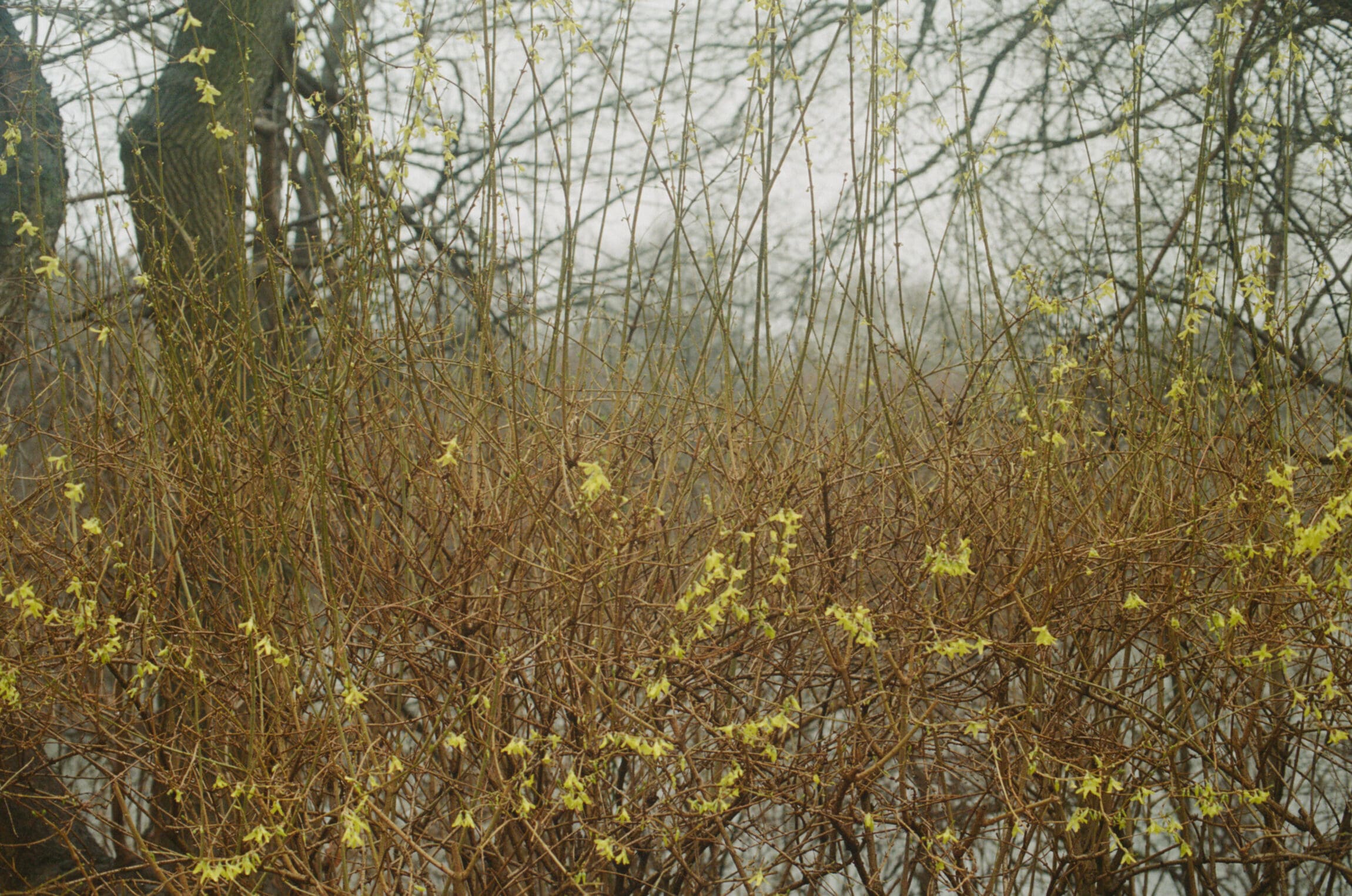
What do you think about when composing your poetry?
Being an artist is about cultivating an acute sense of observation. I’m continually watching the world: seeing how it twirls and quivers. And I’m taking notes. Writing poetry is where I reflect on what I see. Each poem is an imprint of something I witnessed, an image, a sensation, a fleeting gesture that I wanted to immortalise. That’s what poetry is about: taking ephemera and making them eternal. An affirmation of the beauty in everything.
ALOK’s travel experiences
How has travel shaped you as a person, and your work?
What I learned early on about travelling was that there are many worlds inside this one, and that what we call ‘reality’ isn’t universal, it’s contingent on time, place, circumstance. In that way, travel gives me a sense of possibility, that nothing is fixed or permanent, because there are alternate ways to live and organise society. Travel has connected me with an international community of artists who I see as my peers. These relationships and ongoing collaborations continue to sustain and ground me, and make me feel like something greater than myself.
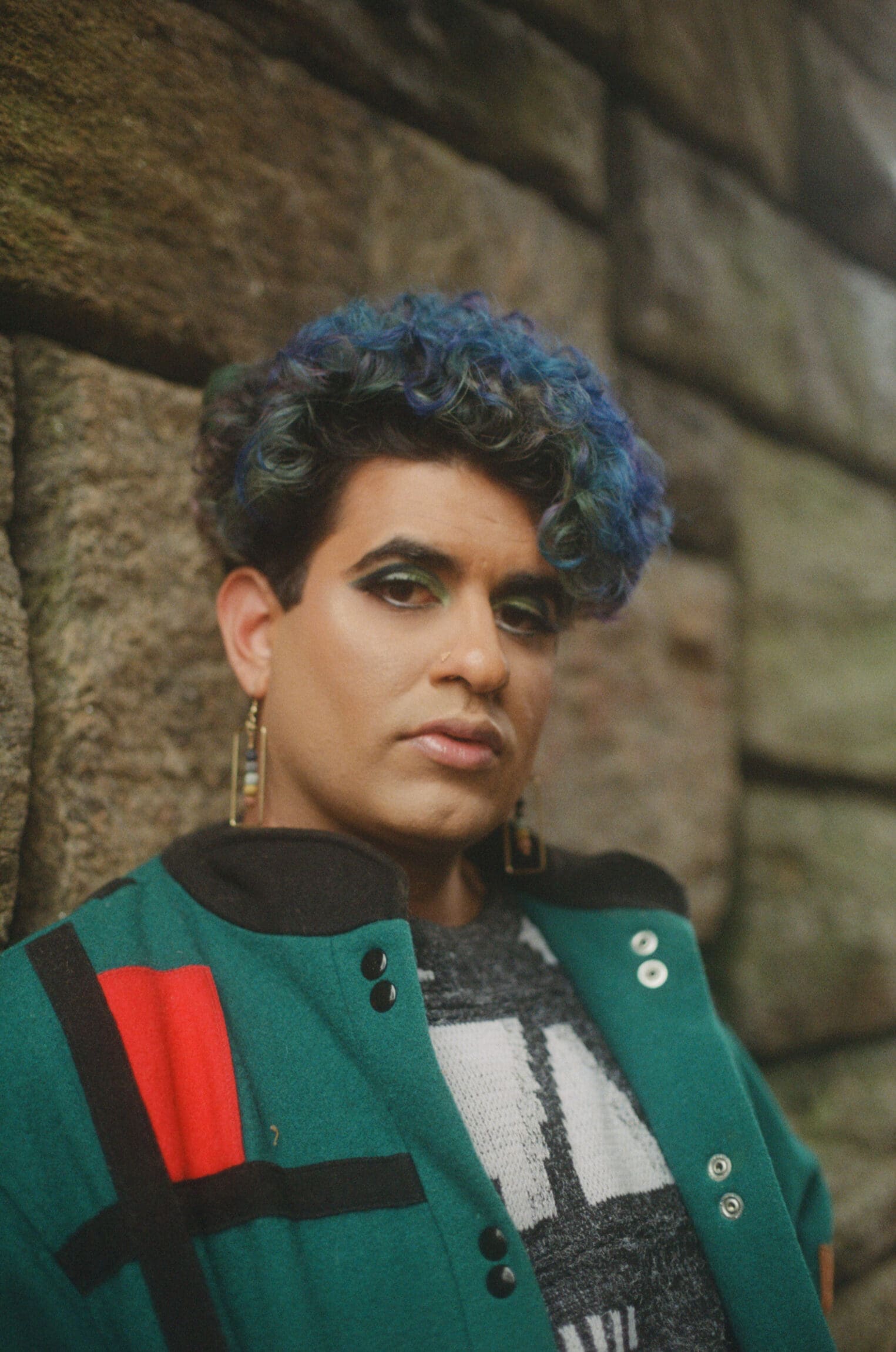
Can you talk about the #DeGenderFashion movement? What do you hope to achieve, and for companies to recognise?
We’ve seen people discuss ‘gender neutral’ or ‘gender free’ fashion as if it’s a trend. This is misleading on many fronts and I’ll address two of them here. First: people have been resisting gendered fashion norms for centuries. For example, there was an entire dress reform movement in the late 19th and early 20th centuries where women fought for the right to wear trousers (yes, women wearing trousers used to be considered crossdressing in a similar fashion that men wearing dresses is regarded as today). Secondly: all clothes are already gender free. It’s simple really: there are no ‘women’s clothes’ or ‘men’s clothes’, there are just clothes. Individuals get to decide what clothing means to them. This means that fashion and beauty industries should stop dividing their product lines by gender and should instead be more precise about sizing and measurements. While we’ve seen significant strides in individuals transgressing made-up fashion gendered norms, it’s important to remember that we need structural solutions to structural problems. Brands and media and advertising groups must stop gendering clothing in the first place.
How does travel influence your thinking on the degender fashion movement?
When we use the words ‘masculine’ and ‘feminine’ to describe fashion we’re most often talking about Western aesthetics. I grew up with men in ‘skirts’, except they weren’t skirts, they were dhotis. This idea that the silhouette of a skirt is inherently feminine doesn’t map onto so many fashion systems outside the West. Being able to immerse myself in fashion cultures across the world has certainly fueled my commitment to degendering fashion. Gendering fashion isn’t simply about reinforcing gender norms, but also colonial norms.
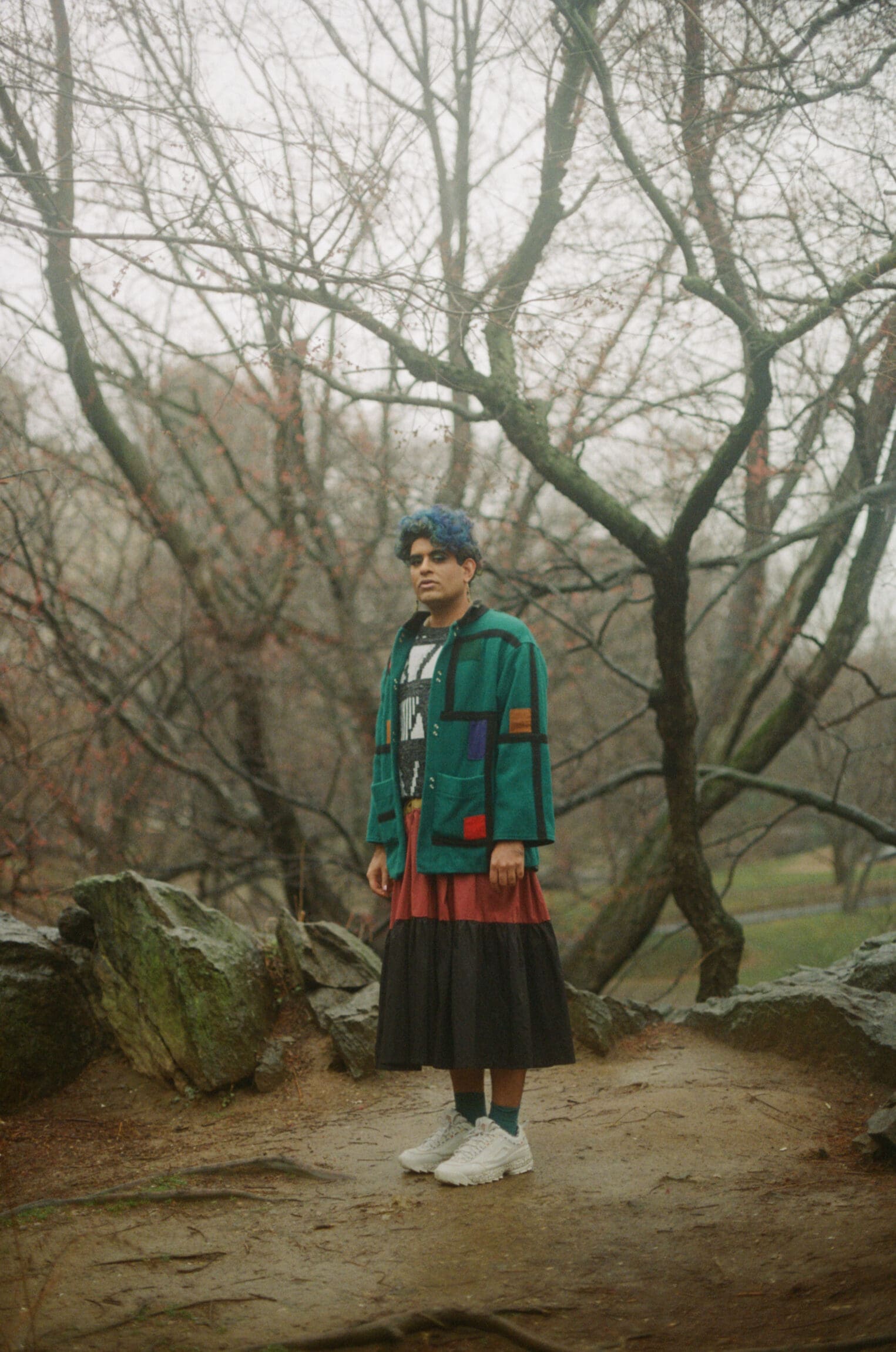
What’s the journey that’s impacted you most?
My healing journey continues to be extraordinarily confronting and rewarding – it’s made me revisit and revise everything that I thought I knew about myself. A few years ago I was a card-carrying cynic, deeply sceptical about love. Now, compassion is my anchor and I wake up every day with a commitment to love more and harder. Focusing on my healing has given me a new lease on life. Like for the first time in a long time I’m closer to actually living my own life, not what other people want me to be.
Who do you admire?
I feel continually in awe of and galvanised by my peers: artists like Travis Alabanza (UK), Ocean Vuong (USA), UMLILO (South Africa), Faris Cucu (Austria), and you!
